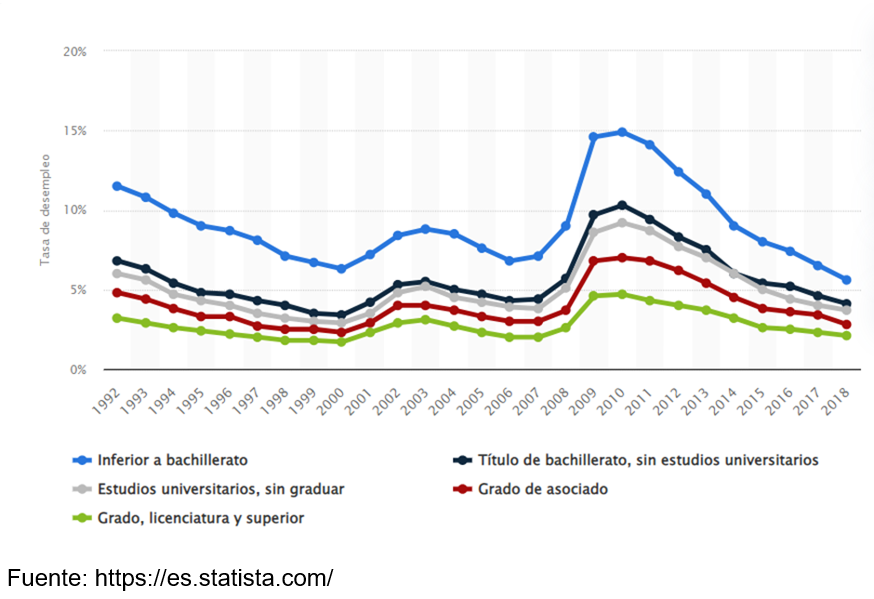3 Ideas that stop you from doing a Doctorate / Postdoctorate and are completely wrong
Few people have the courage to decide to pursue a doctorate. In actuality, less than 1% of people worldwide hold a Ph.D., according to data.
Limiting beliefs may be the cause of this circumstance, which can be discussed with resolve and resolve. If you or someone you know is in this situation, don't hesitate to consider the information we will provide in this article because it will prompt you to consider your chances of realizing your aspirations and offer you the assurance that you can accomplish your individual objectives.
The following are a few of the key barriers that prevent people from pursuing their professional aspirations:
1. Not having money to be able to assume the investment.
It is true that enrolling in higher education is an investment, but it is also true that there are many online options and scholarships available today, allowing those who are genuinely committed to their goals to realize their goals.
To understand that there are numerous possibilities, one need just look at the broad selection of internet offers. You may find an offer that fits your needs and budget with a little research, and best of all, you won't have to sacrifice quality because there are universities with years of expertise, prestige, and comprehensive programs.
2. Not having the necessary time to be able to assume responsibility.
In the past, I had to relocate to a college, live there full-time, and essentially give up my job, my family, my friends, and my life as I knew it for years in order to pursue these courses.
Because programs are available that you can complete at your own speed, you may now study from the comfort of your home without giving up your work or family life, due to the internet revolution. This enables you to strike a balance between your current reality and your aspirations.
3. Suffering from Impostor Syndrome.
Are you really prepared to take this step?
It is fairly typical for someone who is aware of the commitment a doctorate entails to believe that he lacks the knowledge necessary to meet the challenge and has concerns about his own talents. The term for this is impostor syndrome.
According to the International Journal of Behavioral Science, more than 70% of people experience ideas of thinking they are impostors in the job at some point in their lives. Seven out of ten experience Impostor Syndrome.
People who experience this psychological phenomenon may feel less deserving of the praises bestowed upon them or are less capable of achieving the objectives they have set for themselves.
Think about it and consider that only those who put their minds to anything can change the world and that all you need a superpower for is your will if any of these concepts are keeping you from achieving your goals.
Don't pass up the chance to create the life you've always wanted; explore all your possibilities and place a wager on your own success.
We leave the following statistic for your consideration: In the USA, 98 out of 100 individuals with master's and/or doctoral degrees have stable jobs.
Find the study program that best fits your needs and your career objectives if you want stability and the life of your dreams.
The unemployment rate in the United States from 1992 to 2018,
by educational level
